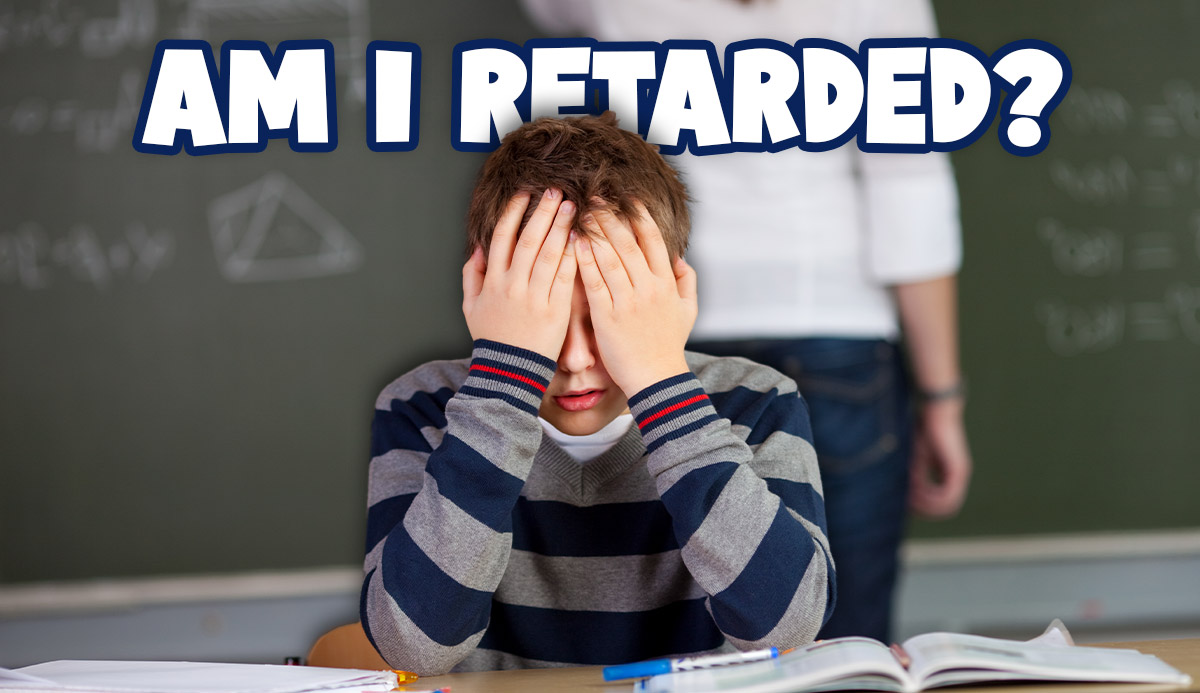AI-Generated Article
This content has been automatically generated using artificial intelligence technology. While we strive for accuracy, please verify important information independently.
Words, it seems, often carry more than just a single meaning, and some words, it turns out, have quite a bit of weight to them. You might come across a word that means one thing in a very precise, almost technical way, but then, it has a completely different feel when people use it in everyday conversation. This difference, really, can make all the difference in how we hear and how we understand what someone is trying to say, so it's almost a kind of alert for us to pay closer attention.
When we think about language, it's pretty interesting how certain expressions can have a dual nature. One side might be about something quite straightforward, like an action or a process, while the other side, well, that can be a bit more complex, carrying feelings or judgments. It's like words can have a sort of hidden layer, a history of how they've been used that changes their impact. You know, it's not just about what a word says on the surface; it's also about what it suggests or how it makes someone feel when they hear it, which is something we often overlook.
This idea becomes very clear when we look at a word like "retard." It has a very specific definition related to slowing things down, but then it also has a use that is quite different, carrying a strong social charge. This particular word, in fact, serves as a really good example of why we need to be thoughtful about the words we choose, and why a sort of "retard alert" might be helpful in our everyday chats and writings, just to make sure we are clear and respectful.
- Julia Berolzheimer House
- Brittany Daniel Tits
- Cabrillo Beach House
- Julio Cesar Pimentel Soriano
- Hikey Onlyfans
Table of Contents
- What Does it Mean to Delay Something?
- How Can a Word Have Two Sides?
- The Social Impact of a "Retard Alert"
- Why Is Caution Important with This "Retard Alert"?
- What Happens When Words Are Used Carelessly?
- Is There a Better Way to Talk About "Retard Alert" Issues?
- Reflecting on Language and its Power
What Does it Mean to Delay Something?
When we talk about the word "retard" in its most straightforward sense, we are, in a way, just talking about the act of holding something back. It really means to slow down how quickly something is happening or to keep something from moving ahead. Think about a process that is supposed to be going along at a certain pace, but then something happens that makes it move more slowly than it should. That act of making it slower, or putting up a barrier that keeps it from getting where it needs to go, is what this meaning captures. It is about a kind of hindrance, something that stands in the way of smooth progress, or that makes an advance take much longer than expected. So, it's a very practical sort of meaning, describing an action that affects timing or speed.
To slow something up, especially by stopping it from moving forward or making it harder to get things done, is the core idea here. It is about putting the brakes on, so to speak, or making the path a bit more difficult for something that is trying to develop or achieve a goal. For instance, if you have a plan for something to be finished by a certain time, and then something comes along that pushes that deadline back, you could say that particular thing has acted to slow down the progress. It is a very neutral description of an event or an influence that makes things take longer or happen less effectively. There is no judgment here, just a description of a physical or procedural effect, and that is a very important distinction to keep in mind, really.
Consider a situation where a young plant needs certain things to grow big and strong, like enough water or sunlight. If that plant does not get what it needs, its growth might be held back. It will not develop as quickly or as fully as it should. In this kind of example, we can see how something, like a lack of fresh fruit and vegetables for a young child, can actually act to slow down their natural growth. It is a kind of physical slowing down, a process being held back from its typical speed or full potential. This is the definition that is about a simple cause and effect, where something acts to make development or progress take more time, or just not happen at the rate it usually would, or that we would expect, you know.
How Can a Word Have Two Sides?
It is quite interesting, really, how a single word can have a meaning that is quite neutral and descriptive, like slowing something down, and then also have another meaning that carries a very strong, often hurtful, social impact. This happens with "retard" too. In its everyday use, and this is where a "retard alert" really comes into play, it has become a word that people often use to describe someone in a very negative way. It is used as a kind of insult, you know, for a person who someone might think is not very smart, or who takes a long time to understand things, or who just seems to be ineffective in some way. This second meaning is very different from the first, as it is about judging a person, rather than just describing an action or a process.
This particular usage often comes from comparing a person to what are considered "stereotypical traits" of someone who might struggle with certain things. It is a way of putting someone down, suggesting they are less capable or less intelligent than others. This is why the word, in this context, is often seen as a slur. A slur, in simple terms, is a word that is meant to insult or to cause harm to someone, often by making fun of their perceived weaknesses or differences. So, while one meaning is about delaying something, the other is about labeling a person in a very dismissive and hurtful way, which is a big difference, really.
What makes this even more serious is that this word has also been used to describe people who actually have a learning disability. A learning disability is a real condition that makes it harder for someone to learn in typical ways, or to process information as quickly as others. When the word "retard" is used in a casual or insulting way, it often ties back, in people's minds, to these real conditions, making it even more painful and inappropriate for those who are affected by learning differences, or who care for someone who is. It is, in a way, like taking a medical or developmental term and turning it into something meant to belittle, and that is very problematic, actually.
The Social Impact of a "Retard Alert"
The way words are used in society has a very real impact on people. When a word like "retard" becomes common as an insult, it creates an environment where people with learning differences, or those who are just a little slower to grasp something, can feel targeted and hurt. This sort of language can lead to people feeling isolated or ashamed, even though their abilities or their pace of understanding have nothing to do with their worth as a person. It is a kind of social pressure that can be quite damaging, making people feel less than they are, just because of the words others choose to use, and that is a significant thing to think about, so.
The impact of such a word goes beyond just the individual who is called by it. It affects families, friends, and anyone who cares about creating a more accepting and kind community. When this word is thrown around carelessly, it normalizes a way of thinking that is not inclusive, and that is very dismissive of human differences. It sends a message that it is okay to mock or to put down those who do not fit into a very narrow idea of what "normal" intelligence or capability looks like. This is why a "retard alert" in our conversations is so important, because it reminds us to be mindful of the broader effects of our language choices on the social fabric, you know.
Think about how words shape our perceptions. If a word is constantly used to link someone's learning style or pace with being "stupid" or "ineffective," it can subtly change how society views people with actual learning disabilities. It can make it harder for them to be seen for their strengths, their unique perspectives, and their contributions. Instead, they might be viewed through a lens of judgment and negative assumptions, which is really unfair. So, the social impact is about how language, especially language used as a slur, can create barriers and reinforce harmful stereotypes, and that is something we should always be aware of, naturally.
Why Is Caution Important with This "Retard Alert"?
Given the two very different ways the word "retard" is used, it becomes clear why using it requires a great deal of thought and carefulness. The advice to use this word with a lot of caution is not just a suggestion; it is a very important guideline for respectful communication. When a word has the power to describe a simple slowing process, but also carries the heavy baggage of being a slur that targets people's intelligence or learning abilities, then its casual use can easily cause unintended harm. It is about recognizing the potential for misunderstanding and offense, and choosing to avoid it, you know.
The reason for this caution is really about avoiding pain. No one wants to be labeled as "stupid" or "obtuse," especially not with a word that has been historically linked to people with real learning challenges. Even if someone uses the word in what they think is a harmless way, perhaps to describe a slow process, the listener might still hear the slur, because that meaning is so widely recognized in society. This kind of misinterpretation can lead to hurt feelings and can break down communication, which is something we generally want to avoid, so.
So, the "retard alert" here is a reminder that words have consequences. It is a call to think before speaking, to consider the full weight of a word, and to choose alternatives that are clearer and kinder. There are always other ways to express the idea of something slowing down, or someone taking longer to understand, without resorting to a word that has such a strong potential to offend. Being cautious with this word is a way of showing respect for all people, and for the diversity of human abilities and learning styles. It is, in a way, a simple act of thoughtfulness that can make a big difference, honestly.
What Happens When Words Are Used Carelessly?
When words, especially those with a dual nature like "retard," are used without much thought, several things can happen, and none of them are really very good. For one, it can lead to a lot of confusion. Someone might mean the technical definition of slowing something down, but the person hearing it immediately thinks of the slur, and then there is a misunderstanding. This kind of miscommunication can make it hard to have clear conversations, and it can even lead to arguments or bad feelings, which is something we often see, actually.
Beyond confusion, careless word choice can also cause real emotional pain. Words have power, and when a word that is known to be a slur is used, it can make someone feel devalued, ashamed, or angry. This is especially true for people who have a personal connection to the word's offensive meaning, perhaps because they or a loved one have a learning disability. It is a kind of casual cruelty that can have a lasting impact, even if the person speaking did not mean to be cruel. The impact is still there, and that is what really matters, you know.
Moreover, using words carelessly can, in a way, normalize harmful language. If people hear a word like "retard" being used frequently, even in seemingly innocent contexts, it can make it seem acceptable. This normalization can then make it harder to challenge its use as a slur, and it can perpetuate a cycle of insensitivity. It suggests that it is okay to use language that marginalizes or belittles others, which is something that goes against the idea of creating a welcoming and respectful community for everyone. So, the consequences of careless language are pretty far-reaching, and that is something to consider, really.
Is There a Better Way to Talk About "Retard Alert" Issues?
Yes, there are definitely better ways to talk about both the idea of something slowing down and the important issues related to how we describe people. When we want to convey that something is being held back or is progressing slowly, we can use words like "delay," "impede," "hinder," or "slow down." These words are clear, precise, and they do not carry the same negative social connotations. For example, instead of saying a lack of something might "retard" growth, we can simply say it might "slow down" growth or "hinder" its development. This makes the message very clear without any potential for offense, and that is a very simple switch, you know.
When it comes to describing people, especially those with learning differences, the best approach is always to use respectful and person-first language. Instead of using labels that can be hurtful, we can talk about "a person with a learning disability" or someone who "learns at a different pace." This kind of language focuses on the individual first, rather than their condition, and it promotes dignity and respect. It is about seeing the person, not just a characteristic or a challenge they might face, which is really important, so.
So, the "retard alert" here is not just about avoiding a specific word, but about embracing a broader commitment to thoughtful and inclusive language. It is about choosing words that build up rather than tear down, words that clarify rather than confuse, and words that show respect for everyone. By making these conscious choices, we can create conversations and environments that are more positive, more understanding, and more welcoming for all, which is, honestly, a goal we should all strive for.
Reflecting on Language and its Power
Thinking about a word like "retard" really makes you consider the incredible power that language holds. It is not just about communicating facts; it is also about shaping perceptions, influencing feelings, and building or breaking connections between people. The fact that one word can have such a practical, almost mechanical meaning, and then also be a deeply offensive slur, shows just how complex and nuanced our words can be. It is a constant reminder that what we say, and how we say it, truly matters, very much, actually.
Every word we choose, in a way, carries a bit of history, a bit of social context, and a bit of potential impact. Some words, like this one, have accumulated layers of meaning over time, making them tricky to use without causing some kind of ripple. This is why being aware of these layers, and understanding the different ways a word can be received, is such a valuable skill in communication. It is about being a thoughtful speaker and writer, someone who considers the audience and the broader implications of their message, you know.
Ultimately, the caution around using a word like "retard" is a reflection of a larger societal move towards greater empathy and inclusivity. It is about recognizing that language can be a tool for harm or for good, and choosing to wield it responsibly. By being mindful of the words we use, we contribute to a more respectful and understanding world, where everyone feels valued and where communication truly connects people, rather than pushing them apart. That is the real power of language, and it is something we should always keep in mind, so.
This article has explored the dual meanings of the word "retard," from its technical definition of delaying progress to its harmful use as a social slur. We discussed why this word requires significant caution due to its potential to cause offense and perpetuate negative stereotypes, especially concerning individuals with learning disabilities. The piece highlighted the social impact of careless language and suggested more respectful alternatives for clear and kind communication.
🖼️ Related Images



Quick AI Summary
This AI-generated article covers Retard Alert - Understanding A Word's Meanings with comprehensive insights and detailed analysis. The content is designed to provide valuable information while maintaining readability and engagement.
Miss Alice Schamberger DDS
✍️ Article Author
👨💻 Miss Alice Schamberger DDS is a passionate writer and content creator who specializes in creating engaging and informative articles. With expertise in various topics, they bring valuable insights and practical knowledge to every piece of content.
📬 Follow Miss Alice Schamberger DDS
Stay updated with the latest articles and insights